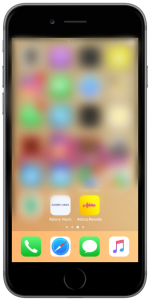
There have been conversations about Progressive Web Apps (PWAs) in the last year. A PWA is a combination of the website and mobile app experience, but that’s just a summary of what it is.
A progressive web app is many things:
- Progressive: Since it is built with progressive enhancement, it works for every user.
- Responsive: Can be adapted on all devices (Mobile, Desktops, Tablets).
- Offline First: Uses service workers. Service workers allow you to support offline experiences, giving developers complete control over the experience.
- Safe: Served via https for security.
- Installable: Allows users install apps they find interesting from the browser without going through the app store.
- Can be easily shared via a url.
- PWAs also feel like a mobile app, because the app shell model separates functionality from content.

Why would I build my website as a PWA?
For me, I was most excited about the “offline first” feature that the service worker gives. Service workers act as proxy servers that sit between web applications, the browser, and the network (if available). The service worker also caches resources in a granular fashion which enables you control how your application behaves in certain situations.
You may choose to adopt the technology for several other reasons.
- Due to the fact that the PWAs can be easily indexed by a search engine in more detail than a mobile app, they have better SEO.
- They are also less stressful to download. As a user saves the web app to the home screen as a PWA, they can already be interacting with the website as opposed to a mobile app download where you have to wait for the download to be done.
- The push notification feature also makes them very engaging.
- They can be easily shared (a url is all that is needed).
Who uses PWAs?
To convince you even further, I have a list of some of our favorite companies or brands that have started using progressive web apps.
- Starbucks
- Jumia Travels
- Alibaba
- Forbes
- The Washington Post
- Fandago
- Flipkart
- The Weather Channel
And the list goes on.
Since you now know what PWAs are, why we should use them and the companies that already use them, its time to implement them in your mobile internet strategy before you’re left behind.
